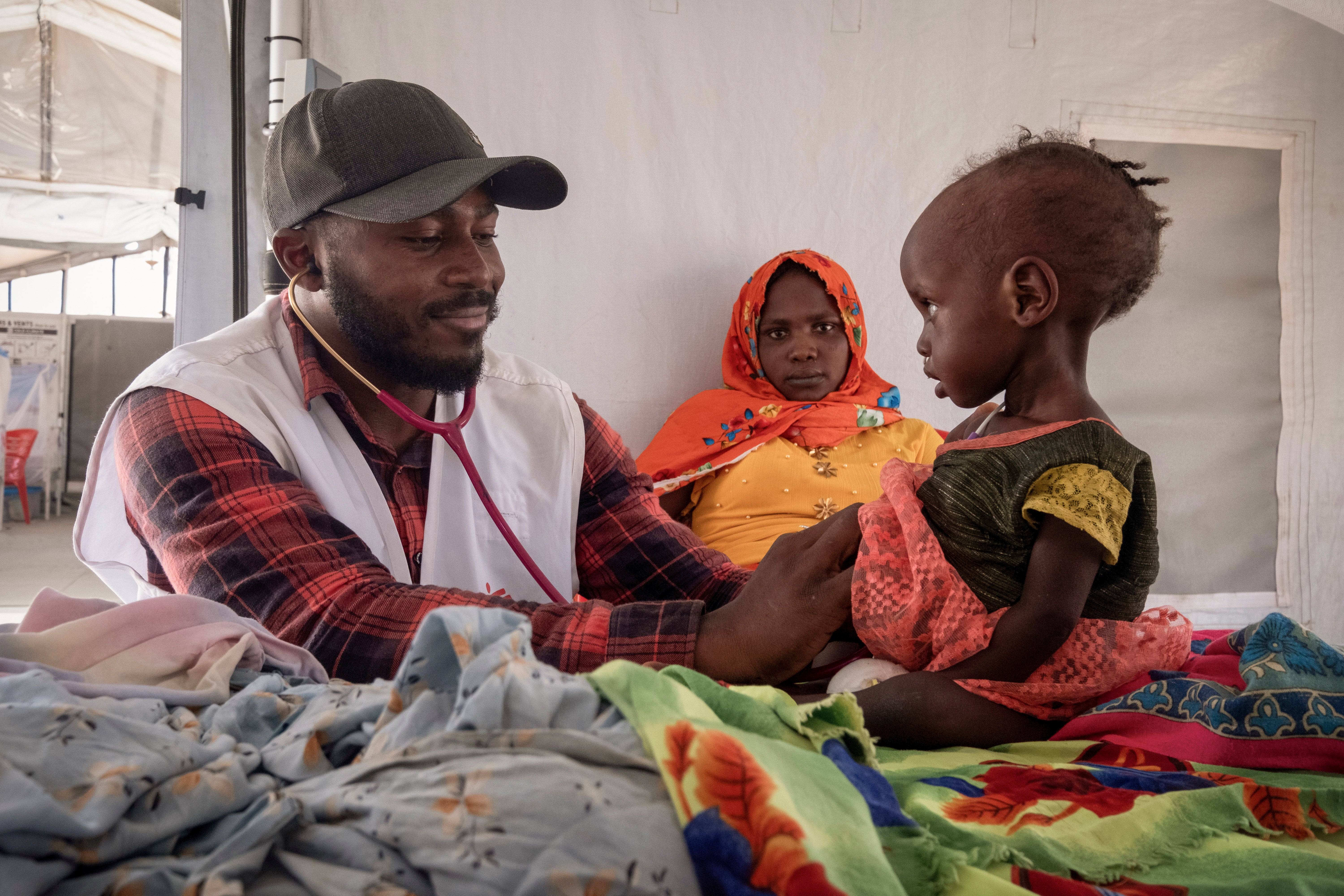Experts warns that 755,000 people at risk of famine in the coming months in war-torn Sudan
International experts have portrayed a grim picture for war-torn Sudan by warning in a report that 755,000 are facing famine in the coming months, amid relentless clashes between rival generals

Your support helps us to tell the story
From reproductive rights to climate change to Big Tech, The Independent is on the ground when the story is developing. Whether it's investigating the financials of Elon Musk's pro-Trump PAC or producing our latest documentary, 'The A Word', which shines a light on the American women fighting for reproductive rights, we know how important it is to parse out the facts from the messaging.
At such a critical moment in US history, we need reporters on the ground. Your donation allows us to keep sending journalists to speak to both sides of the story.
The Independent is trusted by Americans across the entire political spectrum. And unlike many other quality news outlets, we choose not to lock Americans out of our reporting and analysis with paywalls. We believe quality journalism should be available to everyone, paid for by those who can afford it.
Your support makes all the difference.International experts portrayed a grim picture for war-torn Sudan, warning in a report Thursday that 755,000 are facing famine in the coming months, amid relentless clashes between rival generals.
The latest findings come from the Integrated Food Security Phase Classification, or IPC, an initiative first set up in 2004 during the famine in Somalia that now includes more than a dozen U.N. agencies, aid groups, governments and other bodies.
The report said that 8.5 million people are facing extreme food shortages after 14 months of conflict in Sudan.
The northeastern African country descended into chaos in April last year when simmering tensions between the country’s military, led by Gen. Abdel-Fattah Burhan, and a notorious paramilitary group, the Rapid Support Forces, commanded by Gen. Mohamed Hamdan Dagalo, exploded into open fighting in the capital, Khartoum, and elsewhere in the country.
The devastating conflict has killed more than 14,000 people and wounded 33,000 others, according to the United Nations, but rights activists say the toll could be much higher.
The conflict created the world’s largest displacement crisis with more than 11 million people forced to flee their homes. Human rights experts working for the United Nations said that both warring sides used food and starvation as a war weapon.
The report on hunger said people facing the highest level of starvation in the coming months are in 10 provinces, including Khartoum; the Darfur and Kordofan regions; and the provinces of Blue Nile and Jazira. The number was zero in June 2023 and it surged to 755,000 over the past year, it said.
“The conflict has not only triggered mass displacement and disruption of supply routes, market systems and agricultural production, it has also severely limited access to essential humanitarian assistance, exacerbating an already dire situation,” the report said.
Another 8.5 million people are classified in the second worst level of starvation, or Phase 4, meaning that the risk of hunger-related death is rapidly increasing, the IPC report said. Those people are facing extreme food shortages, acute malnutrition and excessively high disease levels, it added.
Overall, 25.6 million people, more than half of the country’s 47 million population, face “crisis or worse conditions” between June and September. It warned about a risk of famine in 14 areas “if the conflict escalates further, including through increased mobilization of local militias.”
“The situation is especially critical for populations trapped in areas affected by direct conflict and/or insecurity and lack of protection,” the report said. It referred to Darfur, Kordofan, Khatoum and Jazira where fighting raged for months.
The conflict has been marked by atrocities, including rape, gang rape and ethnic-motivated attacks, which rights groups say amount to war crimes and crimes against humanity. In recent months, the fighting has expanded to new areas, including agricultural centers such as Jazira province, which the RSF seized last year.
Tjada D’Oyen McKenna, chief executive of nongovernmental organization Mercy Corps, said that the expansion of fighting has devastated food production, and caused severe malnutrition among children, pregnant women and breastfeeding mothers, the chronically ill and older people.
“Sudan has become one of the world’s largest and most ignored man-made tragedies,” McKenna said. “This crisis demands urgent diplomatic efforts to ensure the rapid and safe delivery of humanitarian aid and protection of civilians.”